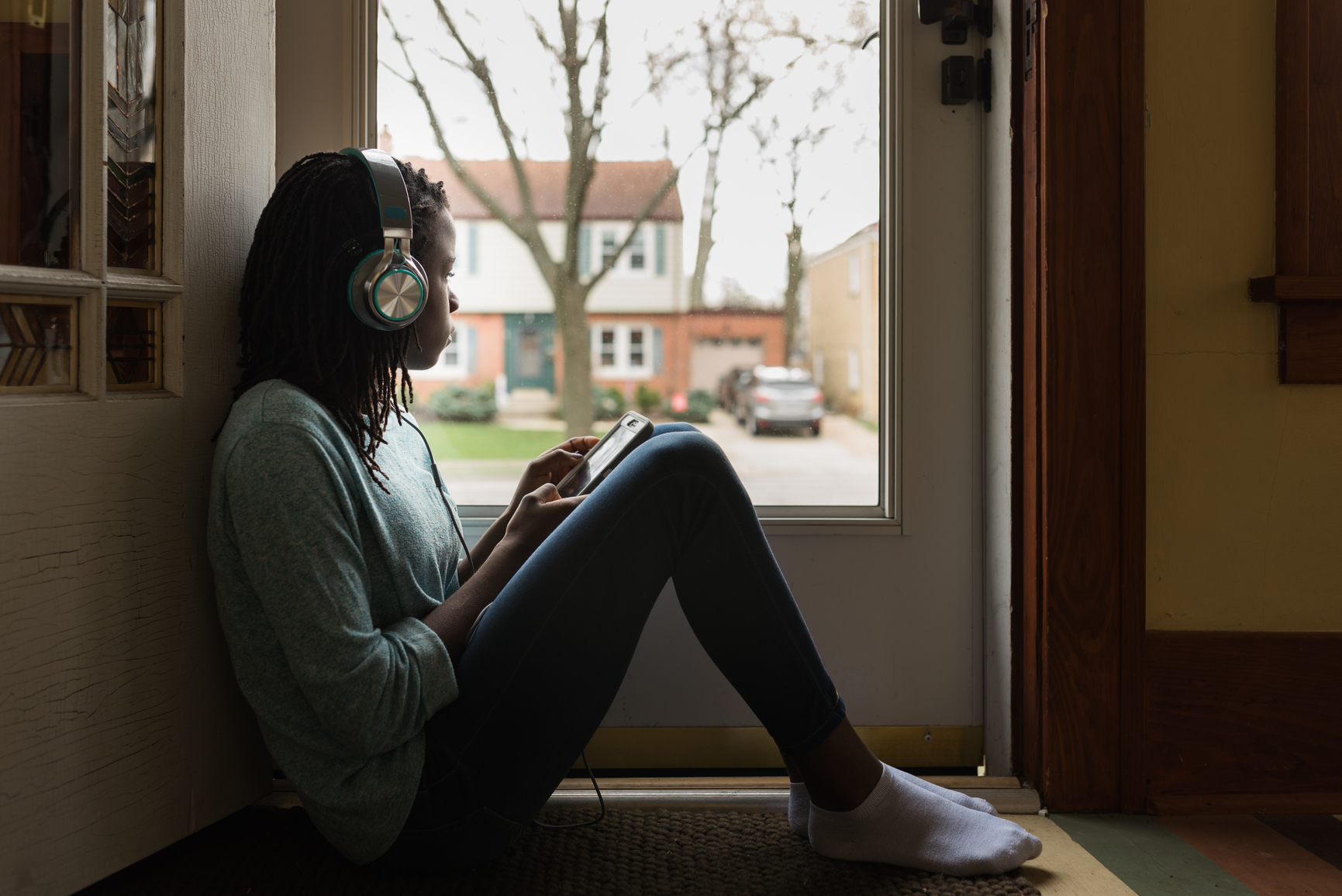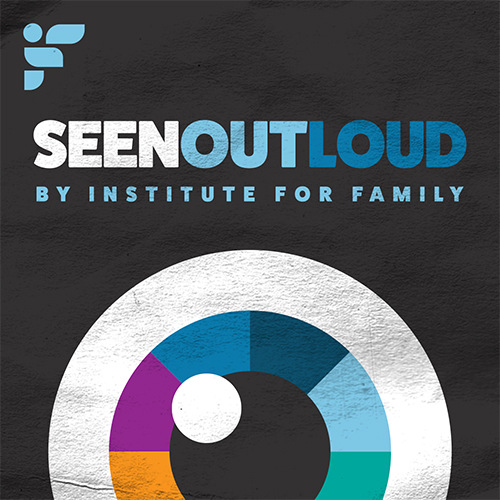Three Reasons Listening is Essential in the Work of Supporting Families
Lessons learned from the Seen Out Loud podcast on what it takes to be a good listener and how listening with intent can be the first step towards change.
When we started developing the Seen Out Loud podcast we knew it was important that listeners walk away understanding why the child welfare system needs to be transformed. We shared the perspectives of families directly impacted by the system to demonstrate this point. Equally important was showing that we all have a powerful tool at our disposal to influence systems change and support families. That tool is listening.
Through this podcast, we’ve learned alongside our audience what it takes to be a good listener and how listening can have profound impacts on both the listeners and the storytellers. For practitioners and change agents in child welfare, the podcast clips below provide insight into ways we can listen that build foundations of understanding and trust with the families we aim to support.
Listening without judgment leads to a deeper understanding
In the new book “What Happened to You?: Conversations on Trauma, Resilience, and Healing,” co-authors Dr. Bruce Perry and Oprah Winfrey discuss how shifting our questioning from “what’s wrong with you” to “what happened to you” opens space for dialogue. This approach allows us to understand the significant role someone’s past experiences can play in their current functioning.
In Season 1, Episode 3, Dr. Bruce Perry, active teacher, clinician, and researcher in children’s mental health and neurosciences, explains how this shift is imperative for systems change. When we reframe our questions while connecting with families and approach conversations from a place of non-judgment, we can reduce the opportunity for shame and engage in more informative dialogue.
Shifting our stance from authoritarian to curious—acknowledging we don’t know everything—opens us up to greater understanding.
Listening with acknowledgment supports families in meeting their full potential
Many of the guests we spoke with during season one shared the common experience of having a moment in time when they felt seen. To be seen refers to the experience that someone in their life acknowledged them for who they were and, despite their circumstances, believed in their abilities to reach their full potential.
“And the judge looked at me directly like a human being, which is what I needed in that moment,” said Alise Morrissey in Season 1, Episode 4. “I was able to say, please, don’t terminate my rights. Please give me a chance. And he did.”
In Season 1, Episode 2, Shrounda Selivanoff, Director of Public Policy at CHS Washington, describes being seen by her counselor during treatment as “soul-changing”. She admits she used to look for a warm hug in all the wrong places.
Today, with the help of her community, she is a passionate mother, kinship caregiver, and parent mentor who inspires and helps other parents who experience the child welfare system. According to Shrounda, being heard and seen in a moment when most would assume snap judgments and withhold empathy helped her forge a new path for her family.

For Jaquia Wilson, a former teenager in foster care, that moment of acknowledgment happened when she met her social worker, Raven Mitchell. Raven believed in Jaquia, according to Season 1, Episode 5. Raven took the time to put down her “work checklist” to ask ‘How are you doing?’ and ‘What do you need from me?’.
By listening to what Jaquia wanted, Raven was able to build a trusting relationship with her client. With Raven’s support, Jaquia envisioned a better future for herself. Jaquia’s social worker fueled her fighting spirit, which led her to college and now, advocacy work for youth in care.
Listening to learn builds a foundation for trusting relationships
In Season 1, Episode 7, we hear from Sharee Pemberton and Commissioner Hope Haywood of Randolph County, North Carolina about the deeply rooted mistrust that can occur between historical decision-makers and marginalized families. During a community town hall, Sharee offered advice on bridging this historical divide, and the Commissioner chose to be open to feedback and listen.
Hope’s desire to learn from what she was hearing was the starting point of Hope and Sharee’s relationship. This opened doors for more dialogue between the county commissioners and families in Randolph County, who are now beginning to strategize new ways to support families in their community. This relationship exemplifies how community leaders can bring about change and build trust by listening to families and meeting them where they are.
Support families by listening first
While “Seen Out Loud” reinforces the need for family strengthening and support through the testimonies of overburdened families, it also shows us that not every action has to be expensive and complex to make a difference. Anyone can move one step closer to family well-being just by listening to families and finding out what they need.
Listening with open minds, acknowledgment of one’s humanity, and the desire to learn can serve as a building block for developing lasting solutions for families.

